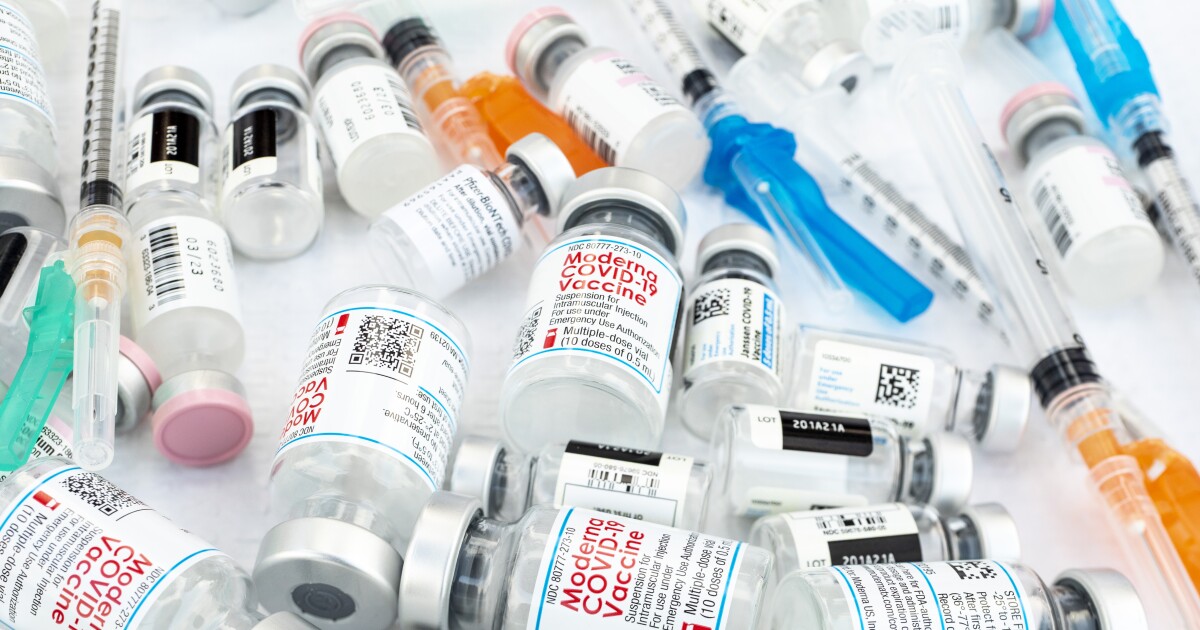When tens of millions of doses of the COVID-19 vaccine are administered, all sorts of side effects are likely to be reported. That includes stories of sudden hearing loss.
Doctors at Johns Hopkins University treated some of the people whose hearing suffered from a coronavirus injection, and made them wonder if the vaccine might really have been responsible. So they decided to investigate.
His verdict: the antigen was not to blame. The timing of the hearing loss was just a coincidence, according to a report published Thursday in the journal JAMA Otolaryngology-Head and Neck Surgery.
The condition in question is known as Sudden Sensorineural Hearing Loss, or SSNHL. The National Institute on Deafness and Other Communication Disorders (NIDCD) describes it as “a rapid and unexplained loss of hearing, either on one occasion or for a few days.” It usually affects only one ear, in particular the sense organs of the inner ear. In about half of the cases, hearing returns on its own to some extent within a couple of weeks.
Experts are not sure how common the condition is. The American Academy of Otolaryngology and Head and Neck Surgery estimates that for every 100,000 people, between five and 27 contract the condition each year. Approximately 66,000 new cases are registered annually, indicates the academy.
The NIDCD, which is part of the National Institutes of Health, says that new cases emerge at a rate of 20 to 120 per 100,000 people annually. And he points out that many probably never tell doctors because patients mistakenly assume that their hearing was affected by a temporary condition, such as a sinus infection, allergies, or earwax buildup.
In reality, SSNHL can be triggered by a variety of things, including head trauma, infections (or some of the medications used to treat them), an autoimmune disease, or problems with blood circulation. In nine out of 10 cases, doctors and patients never find out what caused it.
Flu shots were once blamed for cases of sudden hearing loss, but a 2016 study in the journal Otolaryngology-Head and Neck Surgery failed to detect a link between the condition and flu antigens or anything else. .
Sudden hearing loss was confirmed in patients who came to Johns Hopkins with audiometries. All were affected in only one ear and it occurred within 24 hours of administering a dose of the COVID-19 vaccine.
Intrigued, doctors set out to determine how common this was across the country. So they turned to the Vaccine Adverse Event Reporting System (VAERS) administered by the Centers for Disease Control and Prevention (CDC) and the Food and Drug Administration ( FDA, for its acronym in English).
Between December 14, 2020 and March 2, 2021, VAERS received a total of 147 separate reports from SSNHL following an injection against COVID-19. Johns Hopkins physicians evaluated that data and determined that 40 of the cases were both credible (that is, they were referred by a physician and included robust documentation) and plausibly related to the administration of a coronavirus vaccine (as they occurred within three weeks after receiving the injection).
Of those 40 cases, 25 were women and 15 men. They were between 25 and 88 years old, with an average age of 56 years (SSNHL usually affects people between 40 and 50 years old).
Twenty-eight of them had received the vaccine manufactured by Pfizer and BioNTech, and 12 received the one from Moderna. (None of the cases involved Johnson & Johnson’s single-dose antigen, which was cleared by the FDA a few days before the study period ended.)
According to the CDC, a total of 86,553,330 doses of vaccine were administered in the United States during the roughly 12-week period they examined.
To arrive at the lowest possible incidence of vaccine-related sudden hearing loss, the researchers imagined that all of those doses were given to separate people and that only 40 of them developed SSNHL. On an annualized basis, that would equal 0.3 cases per 100,000 people.
To calculate the highest possible incidence, the researchers counted the 147 VAERS reports and assumed that only 43,276,665 people were vaccinated (with each receiving two doses). On an annualized basis, that would mean 4.1 cases per 100,000 people.
But even that was far below the incidence of SSNHL seen in the United States before the advent of COVID-19 vaccines. According to a 2013 study published in the journal Otology & Neurotology, the low limit of that range was 11 cases per 100,000 people for patients under 18 years of age, and the high limit was 77 cases per 100,000 for patients 65 years and older. .
No matter how you look at it, it is clear that COVID-19 vaccines are not driving any increase in cases of sudden hearing loss, Johns Hopkins physicians concluded.
There is “no relationship” between the Pfizer-BioNTech and Moderna vaccines, on the one hand, and SSNHL on the other, they wrote.
“We hope these findings will reassure physicians and patients to receive all scheduled doses of the vaccine, as recommended by current public health guidelines,” they added.
If you want to read this article in Spanish, Click here.
–

